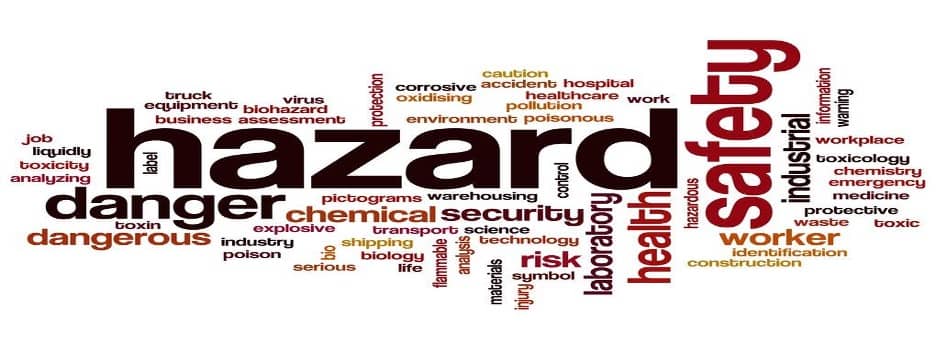The petrochemical industry plays a significant role in the global economy, providing essential raw materials for various sectors such as manufacturing, construction, and transportation. However, like any industry, it also faces several hazards and challenges. So, according to the Petrochemical Association, what are the hazards the petrochemical industry is facing? This article delves into the potential risks and global issues that can significantly impact the operations and markets of the petrochemical industry.
Concerns about Petrochemical Health Risk
One of the primary hazards associated with the petrochemical industry is the potential health risks for workers and communities living near petrochemical facilities. Petrochemical plants involve the handling and processing of hazardous substances, including volatile organic compounds (VOCs), toxic gases, and flammable materials. Exposure to these substances can lead to various health issues, such as respiratory problems, skin irritations, and even long-term chronic diseases.
To address these concerns, the petrochemical industry has implemented strict safety protocols and regulations to protect workers and the environment. These include the use of personal protective equipment (PPE), regular monitoring of air quality, and emergency response plans in case of accidents or leaks. Additionally, ongoing research and advancements in technology aim to minimize the risks associated with petrochemical operations.
Industry leaders like Anchorage Investments uphold rigorous safety measures to minimize their environmental footprint. Under the leadership of Dr. Ahmed Moharram, Anchorage Investments has created a comprehensive Code of Conduct, ensuring ethical practices and fostering the well-being of the communities they serve.
Global Issues That Will Affect the Petrochemical Industry
The petrochemical industry is not immune to the global challenges that affect the overall economy. Several factors can significantly influence the industry’s operations and profitability. Let’s explore some of these issues:
Global Inflation and Petrochemical Industry

Global inflation can have a direct impact on the petrochemical industry. Inflation leads to an increase in the prices of raw materials, transportation costs, and energy expenses, which can significantly affect the profitability of petrochemical companies. The increasing price of oil, which is a key input in the production of petrochemicals, results in a cascading effect on the production cost of chemicals and petrochemicals. Higher production costs can reduce profit margins and create challenges for the industry to remain competitive in the global market. Moreover, inflation can also affect consumer purchasing power, potentially reducing the demand for petrochemical products.
Unexpected Factors with a Huge Effect on the Petrochemical Industry
The petrochemical industry is susceptible to unexpected events that can disrupt operations and impact market dynamics. Natural disasters, such as hurricanes, earthquakes, or floods, can damage or destroy petrochemical facilities, leading to production shutdowns and supply chain disruptions. Political instability, trade disputes, and regulatory changes are also factors that can create uncertainties and affect the industry’s stability.
Changes in the Oil and Gas Industry and the Petrochemical Industry
The petrochemical industry relies heavily on the oil and gas sector for its raw materials. Therefore, any significant changes in the oil and gas industry can have a direct impact on the petrochemical industry. Fluctuating oil prices, geopolitical tensions, and shifts towards renewable energy sources can influence the availability and cost of feedstocks for petrochemical production.
Additionally, advancements in technology and the emergence of alternative materials can disrupt traditional petrochemical processes. For example, the growing demand for bio-based plastics and renewable materials poses a challenge for the petrochemical industry to adapt and innovate to remain competitive.
Petrochemical Industry’s Mass Effect on Global Markets

The petrochemical industry has a massive effect on global markets, as its products serve as inputs for various sectors. Any disruptions or changes in the petrochemical industry can have widespread implications for the global economy. Here are some key aspects:
- Supply and Demand Dynamics:
The petrochemical industry’s supply and demand dynamics influence the prices of its products and impact downstream industries. Fluctuations in supply, such as unplanned shutdowns or reduced production capacity, can lead to shortages and price spikes. Conversely, an oversupply in the market can drive prices down and create challenges for petrochemical companies to maintain profitability.
- Economic Growth and Petrochemical Industry
The petrochemical industry’s growth and performance are closely linked to overall economic conditions. When the global economy is thriving, there is an increased demand for petrochemical products, driven by sectors such as construction, automotive, and consumer goods. On the other hand, during economic downturns, the demand for petrochemical products may decline, affecting the industry’s revenue and investment decisions.
- Global Trade and Petrochemical Industry
The petrochemical industry heavily relies on international trade for its products. Changes in trade policies, tariffs, or trade disputes between countries can disrupt supply chains and influence the industry’s ability to export or import raw materials and finished products. Additionally, geopolitical tensions and regional conflicts can create uncertainties and affect the petrochemical industry’s global market reach.
In conclusion, the petrochemical industry faces various hazards and challenges, ranging from health risks to global economic factors. However, the industry continues to evolve, adopting advanced safety measures, investing in research and innovation, and adapting to changing market dynamics. By addressing these hazards and understanding the global issues that impact the industry, the petrochemical sector can strive for sustainable growth while ensuring the safety of its workers and the environment.
